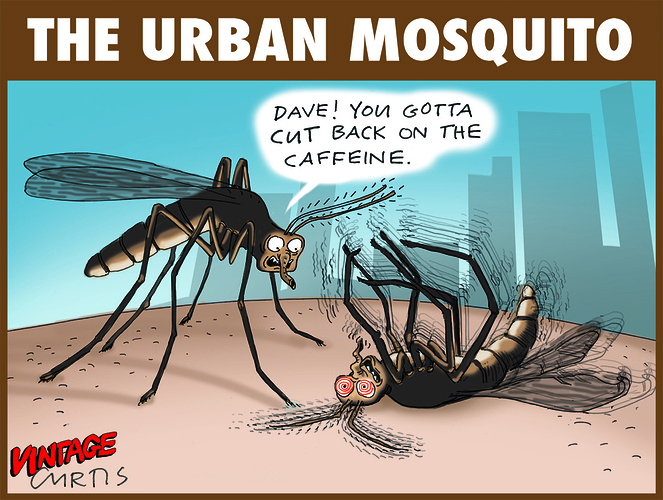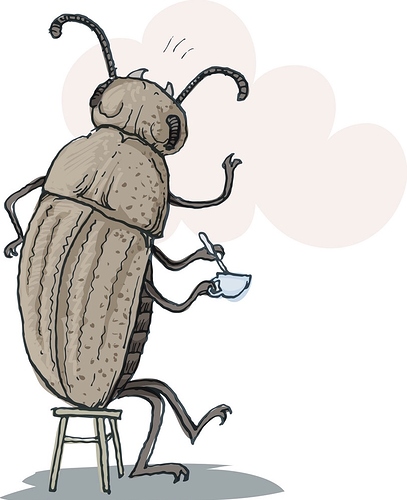There’s a little bit of science I don’t fully understand if anyone can help me.
I know that artificial sweeteners can cause an insulin spike, and I know that insulin causes fat gain by its effect on glucose. What I don’t understand however, is if I drank a diet coke, for example, in a fasted state, whilst fat adapted, and spiked an insulin response, what is it going to work on? There is only the teaspoon of glucose present in the blood at that time.
Just one of the questions keeping me awake at night!
Insulin spike with sweeteners
Studies showing Sweeteners that Raise Insulin Levels?
The insulin spike will prevent (or maybe seriously slow down) the body from burning fat. Insulin is a hormone that signals to the body to store fat, and not to use it. This would be not much to do with blood glucose, but it would drive your blood glucose level lower (this is what insulin does).
The effect of this would be you might get hungry, as the body would need energy, but even though you are fat adapted, you can’t access bodyfat until insulin is lower.
I’m not sure I buy that. If true, artificial sweeteners would have been a lot cheaper than the insulin I was injecting for my T2 diabetes.
Yeah, it’s something that gets said a lot, but the actual evidence for it is pretty weak. It’s most likely something that only affects a few people.
A good example of this would be High Fructose Corn Syrup HFCS, it does not affect insulin (spike it) or blood sugars but what the liver will do is take it and make visceral fat out of it directly to keep your internal organs nice and fatty from the inside out (i.e. obesity; TOFI)?
Artificial sweeteners do the exact same thing in that they don’t affect insulin or blood sugars very much most of these types of compounds were originally designed and intended to be used as an insecticide to kill insects, so how do we actually know artificial sweeteners are not doing the same thing to us as our good ol’e friend HFCS or in a slightly different way?
Notes:
[1] “…With nearly 40% of the world’s population now classified as obese, and increasing evidence pointing to sugar as the culprit, people are turning to foods that contain low-calorie sweeteners to give them the sweet taste they enjoy, without the risk of gaining weight. However, new research from George Washington University in the US suggests that artificial sweeteners may actually increase a person’s risk of becoming obese. …” …More
[2] “…When digested, carbohydrates are broken down into sugar and absorbed into the bloodstream, leading to an increase in blood sugar levels.
When our blood sugar levels rise, our body releases insulin.
Insulin is a hormone that acts like a key. It allows blood sugar to leave the blood and enter our cells, where it can be used for energy or stored as fat.
If blood sugar levels drop too low, our livers release stored sugar to stabilize it. This happens when we fast for prolonged periods, like overnight.
There are theories on how artificial sweeteners may interfere with this process (5).
- Insulin is released in response to the sweet taste.
- Regular use changes the balance of our gut bacteria. This could make our cells resistant to the insulin we produce, leading to both increased blood sugar and insulin levels. …More
And just as ineffective for addressing weight problems.
Which researchers found to be true, at least in one study of rats, comparing artificial sweetener and table sugar. They deteremined that from a caloric standpoint, the subjects were better off eating real sugar than the fake stuff.
experiments on laboratory rats showed that those eating food sweetened with artificial sweeteners ate more calories than their counterparts whose food was sweetened with normal sugar.
Sweeteners react with receptors on the tongue that make people think they are consuming something sweet - even though they contain no calories
The researchers said that the gastrointestinal tract and the pancreas are capable of detecting sweet foods and drinks and respond by releasing hormones, such as insulin.
Wow thank you guys! Some very good science here and making more sense.
I have always been a little resentful when people tell me that doing something will likely make me do something else. Like, if you have a diet coke you will likely crave a doughnut! If you have a glass of wine you will likely crave a kebab or pizza!
For years I was told if you skip breakfast you will likely eat 2 doughnuts before lunch! Turns out I was right all along with that one! My logic being “yes but what if I don’t!”
But the physiological effects are now much easier for me to understand!
Always learning👩💻
Interesting point, one that I have pondered also. I do wonder if there is some undiscovered trigger in our system that responds to sweetened food, even though our insulin is not actually spiked?
Although I have zero scientific data, my own anecdotal evidence is that if I eat things with sweeteners in it- even common ‘keto-friendly’ sweeteners- I want more and more sweetened food and I am definitely hungrier afterward than if I had just eaten and enjoyed a food in it’s natural state. Perhaps my sugar/carb addiction runs deeper than I thought- total abstinence seems my best strategy for me.
This describes what concentrated fructose does in the body. HFCS is only “high” in fructose compared to regular corn syrup. It still has approximately the same fructose:glucose ratio as sucrose (table sugar). Fructose and alcohol are metabolized using similar pathways and both can result in a fatty liver. NAFLD is the Non-Alcoholic version of the liver disease only previously associated with excess, long term alcohol consumption.
Not UNdiscovered, but definitely triggers are the PYY, Glp-1 and ghrelin sensors in our gut. This is why different porcessing of what might be otherwise healthy foods, say an apple, give an over reponse of hunger incretins and insulin when turned into apple juice. They are sensed and absorbed differently.
All this happens before any glucose hits the bloodstream to trigger the pancreas directly.
Studies showing Sweeteners that Raise Insulin Levels?
Good article, thanks @CarlKeller.
I also noticed this in it.
“When study participants drank sucralose, their blood sugar peaked at a higher level than when they drank only water before consuming glucose. Insulin levels also rose about 20 percent higher. So the artificial sweetener was related to an enhanced blood insulin and glucose response.”
I’ve noticed people assuming that if they aren’t seeing an effect on blood glucose after consuming sweeteners then they can conclude that it’s biologically neutral and won’t negatively influence their fat losses. However, the above shows that the insulinogenic and glucanogenic effects of sweeteners are incurred as an overreaction to the calorie containing foods consumed with them rather than in response to the sweeteners themselves.
Other evidence demonstrating the biological activity of sweeteners include:
"We provide here functional evidence for an intestinal sensing system based on lingual taste receptors…
Artificial sweeteners increase glucose absorption in the order acesulfame potassium ∼ sucralose > saccharin…
Our observation that artificial sweeteners are nutritionally active, because they can signal to a functional taste reception system to increase sugar absorption during a meal, has wide implications for nutrient sensing and nutrition in the treatment of obesity and diabetes…"
Here is another one.
“Artificial sweeteners stimulate adipogenesis and suppress lipolysis independently of sweet taste receptors”
What these sorts of studies show is that artificial sweeteners are simply not biologically inert. We just have no idea of how these sorts of effects might be screwing up our metabolism.
I’m trying to find the studies, but there are several I read awhile back that tried all the major sweeteners in humans and found no change in insulin. Also beware of packets. Sweetener packets often use sugar as a base, which is downright idiotic. There was a recent study that found Splenda induced insulin resistance, but they were making people eat massive amounts of Splenda in the form of packets. It was something like 15 packets a day. The studies I’m looking for had people swigging and swishing solutions of various sweeteners. I believe acesulfame potassium caused a tiny change in insulin that barely reached statistical significance, but otherwise nothing happened.
The potential danger in artificial sweeteners lies in their ability to trigger cravings and binges. Tasting sweet usually makes you want to keep tasting sweet. After I broke through my stall I got some water enhancers. Once I started drinking water with them I kept drinking more and more. I drank a lot and peed a lot, but I didn’t ingest any actual carbs and it didn’t stop my weight loss.
There was as study a few years ago in Israel that found sweeteners not only induce insulin they induce insulin resistance in healthy young volunteers in a week I believe. Sorry don’t have to time to search for it but its not hard to find.
Apologies if I have the detail wrong its a few years since I read it.
From the study that @CarlKeller linked:
“When study participants drank sucralose, their blood sugar peaked at a higher level than when they drank only water before consuming glucose. Insulin levels also rose about 20 percent higher. So the artificial sweetener was related to an enhanced blood insulin and glucose response.”
What’s relevant is that the sweetener is having an interaction such that the glucose and insulin response to actual calories is magnified when sweeteners have been consumed. That’s why studies looking at the effect of sweeteners alone produce minimal effects.
I think the biggest problem is how triggering the gut sensors affects appetite and satiety signals. It’s not all about the insulin sometimes. The vagus nerve carries information directly from the gut to the brain. This is one of the things that some gastric surgeries eliminate.
One fairly random paper on it. pdf
OOOh, I like the sound of that one. Thanks.
I believe this is the correct link. (your’s was a search link).


